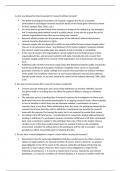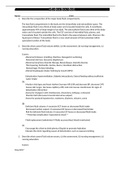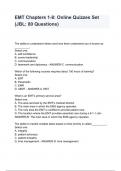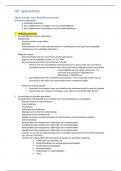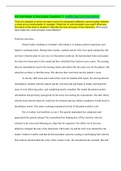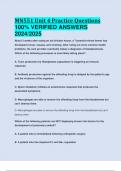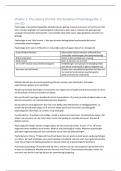Summary
Summary Ethics within Research (and notes on Professions, briefly)
- Module
- Professionalism and Ethics
- Institution
- The University Of York (UOY)
Some notes to set questions on ethics within research, as well as some brief notes on a question asking for arguments as to why teaching should be considered a profession
[Show more]
